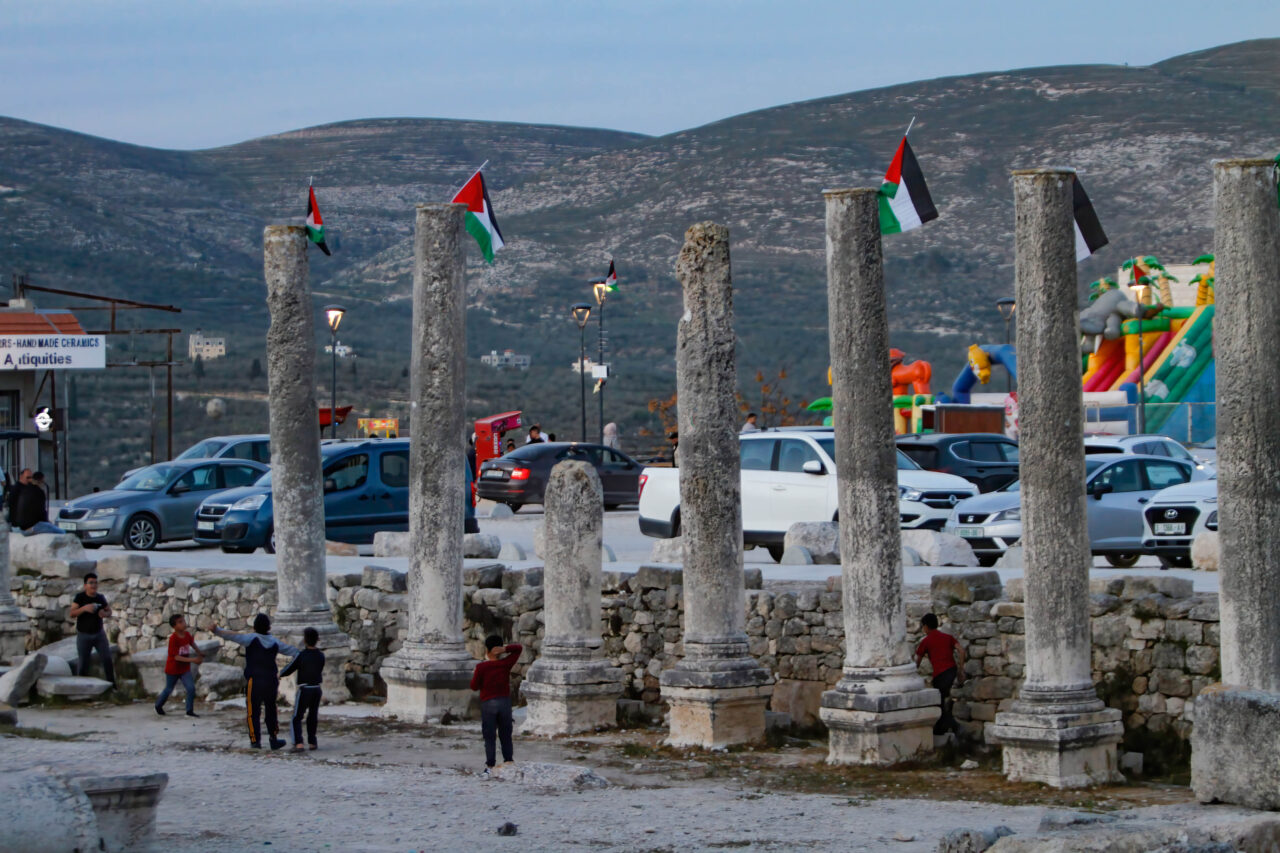
Prior to October 2023, Israel used to permit approximately 160,000 laborers from the West Bank—about 20 percent of the total Palestinian workforce—to work within its borders. These workers contributed an estimated US$3 billion annually to the Palestinian economy, representing nearly 13 percent of the GDP. This arrangement helped contain West Bank unemployment to approximately 14 percent.
But since October 2023, the Israeli government has prohibited most workers from returning to their jobs in Israel, skyrocketing West Bank unemployment levels to 35 percent. Now facing severe economic hardship, many of these individuals have resorted to looting archaeological sites in search of valuable objects for personal income.
“LOSS OF HOPE”
In villages near Khirbet Wili Shabbuni, I spoke with several residents about why they had participated in antiquities digging.
“With the loss of hope comes a descent into despair, hardship, and instability,” said one 59-year-old man who asked to remain anonymous. The father of four and grandfather of seven noted that he had lost his permanent employment in Israel during the third week of the ongoing hostilities on the Gaza Strip and the West Bank.
“Despite persistent efforts over the past 10 months,” he said, “I have been unable to secure a stable income within the Palestinian market.” He added, “While you characterize my actions as looting, I view them as a necessary means of survival.”
Over a period of six months, the man said he participated in diggings at five archaeological sites near his home, including Khirbet Wili Shabbuni, and discovered valuable objects. He worked with a group of four, alongside other groups, using a metal detector to facilitate their efforts. They dug over 10 pits at Khirbet Wili Shabbuni, most of which they later backfilled, he said, though they left two open to resume work later.
“Our findings at this site included numerous pottery sherds, five complete pottery lamps, a pottery bowl, a glass bottle, and approximately 25 coins,” he explained, “which we collectively sold to a middleman from the Hebron governorate for US$850.” They had not uncovered highly valuable items at Khirbet Wili Shabbuni, unlike at other sites.
PALESTINIAN CULTURAL HERITAGE UNDER THREAT
Antiquities looting often intensifies during periods of political conflict, unrest, and instability. During violence, people can exploit the chaos and disorder to loot and sell their finds on the black market. Over the past few decades, looting has escalated to such unprecedented levels in Palestine due to loss of control of these sites through a range of Israeli laws and regulations that have rendered them even more vulnerable to looting and neglect. Scholars have described this destruction as part of Israel’s “cultural cleansing,” defined as the intentional, systematic obliteration of a targeted group and its cultural heritage, aimed at erasing not only the people but also all tangible traces of their existence.
It’s not just looting that poses a threat to Palestinian cultural heritage. Hamdan Taha, the former deputy minister of the Palestinian Ministry of Tourism and Antiquities, has asserted that Israel’s ongoing war in Gaza amounts to cultural genocide. Despite international treaties intended to protect heritage during war, according to Taha, the Israeli Defense Forces have demolished or severely damaged hundreds of archaeological sites, historical monuments, cemeteries, museums, libraries, public buildings, and over 100,000 archaeological artifacts spanning various historical periods.
Since 2002, Israel has assumed control of over 4,500 archaeological sites in the West Bank, including 500 major ones, primarily through the construction of the separation barrier and the establishment of Israeli-occupied settlements in the West Bank. The control exerted over Palestinian archaeological sites has significantly restricted Palestinian engagement in the exploration and documentation of our own history, impeding our capacity to leverage these sites for tourism development and associated economic opportunities.
In July 2024, Israel passed a bill that expands the Israeli Antiquities Authority’s jurisdiction across the West Bank, restricting Palestinian efforts to explore, promote, and protect our cultural heritage. In essence, this measure reestablishes conditions for these archaeological sites reminiscent of the period between 1967, the year Israel began occupying the West Bank, to 1994, when the Palestinian Authority was established. The bill passed a preliminary reading with majority support from 38 coalition and opposition members, while 27 members voted against it.







